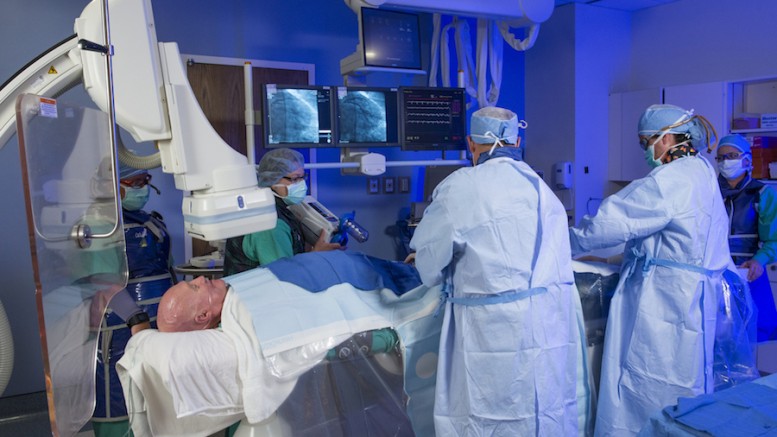St. Elizabeth Healthcare, in Edgewood, Kentucky, decreased the time to treat critical heart attack patients by 30 percent.
In the past year, St. Elizabeth Healthcare in Edgewood, Kentucky, significantly decreased the time-to- treatment for heart attack patients, following an effort by stakeholders from every part of the care team to collaborate and improve processes that speed up care. This improvement was due also in part to the use of a mobile app, Pulsara, which puts timely, clear information in the hands of everyone responsible for caring for the patient, both inside and outside of the hospital.
For patients who arrived at St. Elizabeth Edgewood via ambulance, the average time from first medical contact (FMC) — defined as the moment emergency medical services (EMS) first arrives at the patient’s side — to the administration of artery-opening treatment in the hospital dropped 30 percent, from 103 minutes in the first quarter of 2016 to 72 minutes in January 2017. The American Heart Association (AHA) recommends aiming for a time-to- treatment of less than 90 minutes because it has been associated with better outcomes for heart attack patients.
“Reducing time-to- treatment for patients does not happen without effort,” said Kami Tehrani, DO, a cardiologist with the St. Elizabeth Heart & Vascular Institute. “A committed team of individuals including administrators, physicians, EMS personnel, and frontline staff worked tirelessly to put changes in place that have made these gains possible.”
In 2016, St. Elizabeth Healthcare and EMS agencies in the community also began using Pulsara, a mobile application that has fueled the improvements. Using Pulsara, EMS practitioners in the field or staff in the Emergency Department can instantly send an EKG to the cardiologist and alert the on-call Cath Lab team.
“This single point of instantaneous information speeds communication and creates a team of people all working together to literally ‘beat the clock’: The app includes a countdown clock so that everyone knows how they are doing against the benchmark time of 90 minutes,” explained cardiologist Mohanjit Brar, MD, with the St. Elizabeth Heart & Vascular Institute.
St. Elizabeth Healthcare, located in the Greater Cincinnati area, is the only hospital in Kentucky, Ohio or Indiana to use Pulsara. St. Elizabeth has paid for licensing to put it in the hands of any Northern Kentucky EMS department that wants to participate.
“This improvement underscores the importance of utilizing 911 in the event of heart attack symptoms,” added Phil Dietz, a firefighter/paramedic and EMS coordinator for several Northern Kentucky fire departments. “Paramedics can perform an EKG and get information to the hospital so physicians and staff are ready for the patient when they arrive. Every minute saved improves patient outcomes. Minutes matter. ”
With collaboration, St. Elizabeth Healthcare is setting a new standard.
“As providers of heart attack care, we keep raising the bar on ourselves,” said Jason A. Murray, MD, an emergency physician at St. Elizabeth Healthcare. “Today the goal is 90 minutes from first medical contact to treatment. We are seeing that by working as a team we not only can reach that benchmark but we can exceed it.”

